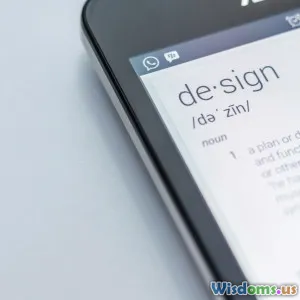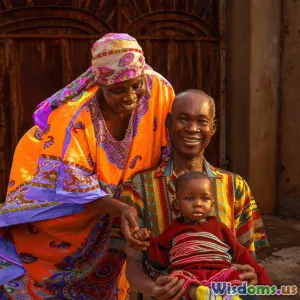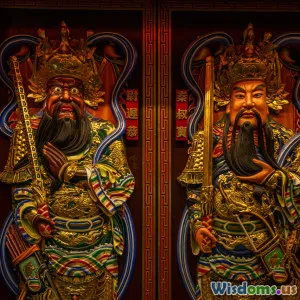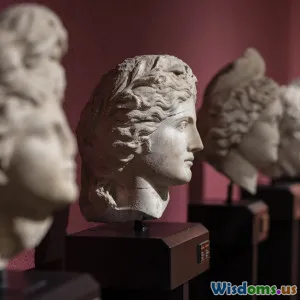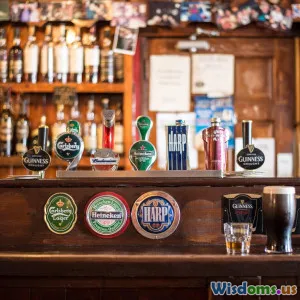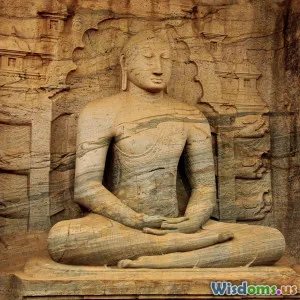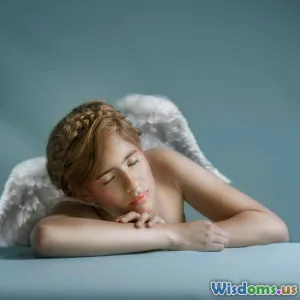
How Norse Mythology Inspires Modern Fantasy Stories
9 min read Explore how Norse mythology shapes today’s fantasy tales, influencing characters, themes, and worlds in modern storytelling. (0 Reviews)
How Norse Mythology Inspires Modern Fantasy Stories
Introduction: The Enduring Allure of Norse Mythology
For centuries, the thunder of Mjölnir, the whispers of the Norns, and the looming shadow of Ragnarök have captivated human imagination. Norse mythology, with its vivid pantheon, rich cosmology, and dramatic tales of heroism and fate, has provided fertile ground for storytelling throughout history. In modern times, this ancient narrative framework continues to inspire fantasy authors, game designers, and filmmakers alike—shaping some of the most compelling fictional worlds we cherish today.
Why does Norse mythology remain so compelling to creators and audiences? At its core, it grapples with universal themes: the tension between order and chaos, inevitable destruction and rebirth, and complex gods who often embody distinctly human traits. These elements resonate deeply, enabling storytellers to craft multi-dimensional narratives with enduring relevance.
In this article, we will explore how Norse mythology inspires modern fantasy stories by examining key themes, iconic characters, and its influence across various media.
Norse Mythology: A Brief Overview
Before delving into its influence, a concise understanding of Norse mythology is essential. Originating from the ancient Scandinavians and Germanic tribes, Norse myths paint a universe comprised of nine realms connected by the world tree Yggdrasil. Central figures include Odin, the all-seeing god of wisdom and war; Thor, the thunder god wielding the mighty hammer Mjölnir; Loki, the trickster and shape-shifter; and Freyja, goddess of love and fertility.
The mythology narrates creation myths, heroic feats, and ultimately the cataclysmic end of the world known as Ragnarök—a series of battles that lead to the death of many gods and the rebirth of the world.
The vivid characters and stark story arcs offer a blend of fantasy, tragedy, and moral complexity that have captivated audiences for generations.
Iconic Norse Elements that Shape Modern Fantasy
1. Complex Deities and Moral Ambiguity
Unlike the morally absolute deities of some traditions, Norse gods exhibit flawed, deeply human traits. Odin’s quest for knowledge borders on obsession, Thor’s rage is both heroic and destructive, and Loki’s cunning leads to chaos and destruction. This complexity allows authors to develop gods and powerful beings who transcend good-versus-evil archetypes.
For instance, Neil Gaiman’s celebrated novel "American Gods" reinterprets many Norse figures, portraying Odin (as Mr. Wednesday) with layers of charisma, cunning, and moral ambiguity that challenge readers’ expectations.
2. Themes of Fate and Doom
The Norse worldview is deeply fatalistic. Despite their power, the gods know their doom is inevitable. Ragnarök reinforces the notion that destiny cannot be outrun, instilling stories with a profound sense of tragedy and courage in the face of apocalypse.
Modern fantasy frequently invokes this tension. The "Dragon Age" game series, with its prophecy-driven narratives and looming cataclysms, echoes the fatalism of Norse myths. Characters act bravely—aware that ultimate destruction may be unavoidable—creating emotional depth and stakes.
3. The Symbolism of the Nine Realms and Yggdrasil
The concept of a cosmological tree connecting diverse worlds enriches fantasy world-building. Authors and game developers often craft layered worlds composed of realms or dimensions linked through mystical means.
J.R.R. Tolkien’s Middle-earth, though primarily inspired by Anglo-Saxon and Finnish myths, echoes this layered sense of world-building. More directly, video games like "God of War" (2018) leverage the nine realms and Yggdrasil’s imagery to create immersive, interrelated worlds grounded in Norse lore.
Norse Mythology in Contemporary Fantasy Media
Literature
Norse mythology’s impact is pronounced in fantasy literature. Author Joanne Harris’s "Runemarks" series intricately weaves Norse gods and motifs into a young adult fantasy setting, portraying ancient magic’s clash with modernity. Similarly, Rick Riordan’s "Magnus Chase and the Gods of Asgard" introduces Norse gods and heroes to a new generation, blending humor and myth.
The moral complexity and evocative imagery found in Norse myths provide writers ready-made archetypes and narrative structures that feel both ancient and fresh.
Film and Television
Marvel Studios’ adaptation of Thor brought Norse mythology to mainstream audiences—with playful modern spin—combining classic godly powers with superhero tropes. The success of this franchise demonstrates how approachable and engaging Norse myths can be.
Additionally, the TV series "Vikings" blends historical and mythological storytelling, presenting a raw portrait of Norse culture, beliefs, and legendary tales reflective of Nordic heritage.
Video Games
Video games excel at immersive storytelling using Norse elements. Titles like "God of War" reinvigorate the mythology by exploring new narrative angles—depicting a grizzled Kratos in a Norse world fraught with gods, monsters, and prophecies. The game's critical and commercial success underscores Norse myths’ adaptability for modern epic storytelling.
Similarly, games such as "Assassin’s Creed Valhalla" offer expansive worlds steeped in Norse mythos, introducing players to legends and historical settings with dynamic interactivity.
Lessons from Norse Mythology for Storytellers
-
Embrace Ambiguity: Norse myths teach that heroes and gods can embody contradictions, enriching characters beyond simple heroism or villainy.
-
Integrate Mythic Themes: Fate, sacrifice, and cyclical destruction heighten emotional resonance and deepen stakes.
-
Robust World-Building: The intricate cosmology of Norse tales inspires detailed, interconnected worlds that feel alive and consistent.
-
Balance Myth with Innovation: Successful modern appropriations of Norse mythology often adapt themes creatively, aligning the ancient stories with contemporary values and narratives.
These lessons enable creators to build complex, compelling stories that honor tradition while engaging modern audiences.
Conclusion: The Eternal Thunder of Norse Influence
Norse mythology’s enduring appeal lies in its powerful storytelling potential—offering elemental gods, epic conflicts, and profound themes ripe for re-imagination. Its influence on modern fantasy is unmistakable, shaping the depth and texture of contemporary narratives across mediums.
From the hammer-wielding Thor soaring through blockbuster films, to mythically inspired characters in novels and immersive game realms, Norse myths provide a timeless blueprint fueling creativity and exploration.
Aspiring storytellers and fans alike can look to this ancient source as both inspiration and a reminder of the rich narrative treasures that myths provide—connecting past and present in an energetic dialogue across time.
Embracing Norse mythology means unlocking profound stories about the nature of power, fate, and identity, inviting new generations to join the age-old saga.
“The past is never dead. It’s not even past.” — William Faulkner
In the case of Norse mythology, the past continually energizes the fantasy worlds of today.
Rate the Post
User Reviews
Popular Posts















